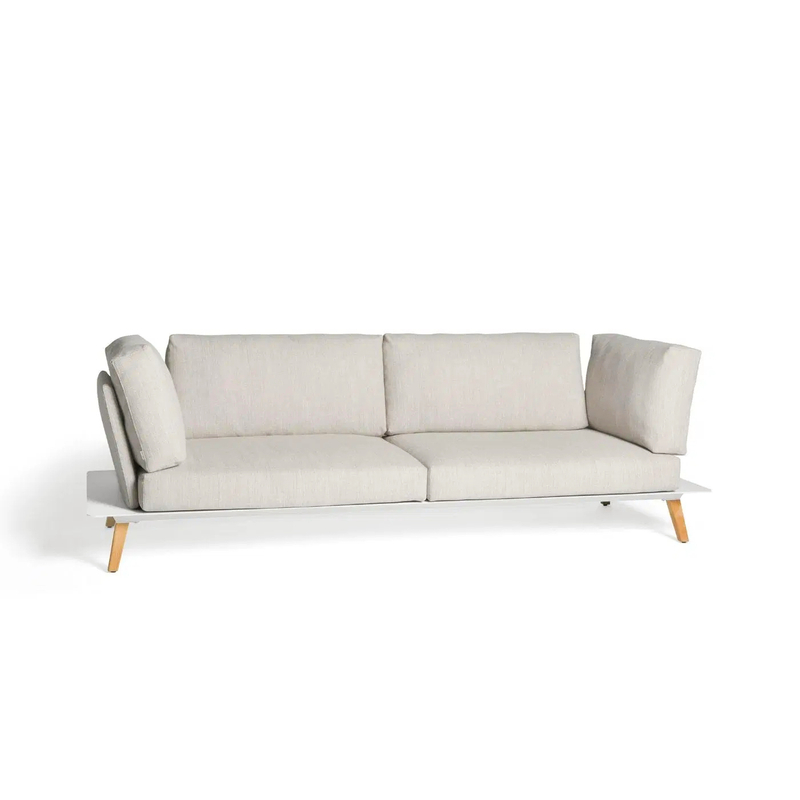Chocolate stains on your sofa can be a nightmare, especially when they’re not treated quickly. Whether caused by kids, pets, or an accidental spill, chocolate can leave tough marks.
In this article, we’ll show you how to remove those stains effectively. You’ll learn the best methods to treat chocolate stains and keep your sofa looking clean.

Chocolate is made up of several ingredients, including cocoa, sugar, milk, and fats. These ingredients can penetrate deep into your sofa fabric, especially when the chocolate is still melted. The cocoa and sugar act like a sticky glue, while the fats contribute to the stain's oily nature. As these substances seep into the fibers, they bond with the material, making the stain difficult to lift out.
The quicker you act, the easier it is to remove a chocolate stain. If left too long, the stain settles deeper into the fabric fibers. Over time, chocolate hardens, and its oils can become more ingrained, creating a more stubborn stain. The longer it sits, the harder it becomes to fully clean, even with the best cleaning methods.
Before cleaning, it’s important to remove excess chocolate from the sofa. If the chocolate is still melted, gently blot it with a cloth or sponge. For hardened chocolate, use a spoon, blunt knife, or butter knife to scrape it off. Be careful not to damage the fabric while scraping.
After scraping, vacuum any leftover chocolate particles. Use a vacuum with a brush attachment to remove small bits of chocolate that are stuck in the fabric.
There are several effective cleaning solutions you can use for chocolate stains:
● Dish Soap Solution: Mix a small amount of dish soap with warm water. Use just a little soap to avoid leaving a residue on your sofa.
● White Vinegar Solution: Mix equal parts of white vinegar and warm water for a simple but effective cleaner.
● Baking Soda Paste: Combine baking soda with a little water to form a thick paste. It should have a toothpaste-like consistency.
● Vinegar & Baking Soda Paste: Mix equal parts of vinegar and baking soda to create a powerful paste for stubborn stains.
Using a clean cloth or sponge, gently apply the solution to the stained area. Be sure not to saturate the fabric, as too much moisture can cause damage.
If you have delicate fabrics, like velvet or silk, take extra care. Don’t rub the fabric too hard, as this can cause damage. Also, always test the cleaning solution on an inconspicuous area first to check for any discoloration or fabric damage.
Let the solution sit for 5-10 minutes. This gives the cleaning agent time to break down the chocolate residue. Don’t skip this step; it makes the stain easier to lift.
After the solution has had time to sit, use a clean cloth to blot the area. Gently blot to lift chocolate particles from the fabric. Avoid rubbing, as this could spread the stain further.
Once you’ve blotted as much as possible, use a dry cloth or paper towel to absorb excess moisture. This helps prevent additional staining and allows the fabric to dry faster.
Dampen a clean cloth with water and blot the area again to rinse away any remaining cleaning solution. Make sure no residue is left on the fabric.
Once the fabric is clean, let the sofa air dry. If the spot is still damp, use a fan to speed up the drying process. Make sure the area is completely dry before using the sofa again.
If DIY methods aren’t enough, commercial stain removers can help. Many products on the market are designed to tackle stubborn stains like chocolate. Look for enzymatic cleaners or fabric-specific products that target greasy stains.
When choosing a store-bought stain remover, always consider your sofa fabric. Some cleaners may contain harsh chemicals that can damage delicate materials. For microfiber or leather sofas, use cleaners designed for those specific fabrics to ensure safe and effective cleaning.
After using a cleaning solution and blotting the stain, vacuuming can help remove any leftover chocolate particles. Using a vacuum with a brush attachment is the best way to lift any remaining residue from the fabric.
You should vacuum the sofa after applying the cleaning solution, blotting the area, and before it fully dries. This will help ensure all chocolate particles are removed, leaving your sofa looking clean and fresh.
Leather sofas require special care when removing stains like chocolate. Avoid using harsh cleaning solutions, as they can damage the leather. Instead, use a gentle leather cleaner designed for stains.
After cleaning, apply a leather conditioner to keep the material soft and moisturized. This helps maintain the leather’s appearance and prevent cracks or drying out.
Different fabric types require different cleaning methods. Here are some tips:
● Cotton: Cotton sofas can handle most cleaning solutions, including dish soap or white vinegar. Gently blot the stained area without over-wetting the fabric.
● Linen: Linen can be more delicate, so use mild solutions. Always spot-test first to avoid discoloration.
● Microfiber: Microfiber is relatively easy to clean, but avoid using too much water. Use a soft sponge with dish soap or vinegar to treat the stain.
Delicate fabrics like velvet and silk require extra care when cleaning chocolate stains. For these materials, use a gentle touch and avoid soaking the fabric. Blot the stain with a cloth dipped in a mild cleaning solution and avoid scrubbing.
When using dish soap or white vinegar on delicate fabrics, always dilute the solution with water. This prevents any damage to the fabric’s texture or color.
To prevent chocolate stains on your sofa, consider using protective measures:
● Using Slipcovers or Throws: Slipcovers and throws are easy to wash and can protect your sofa from spills. They act as a barrier, catching any chocolate before it reaches the fabric.
● Choosing Stain-Resistant Fabrics: When purchasing a new sofa, opt for fabrics designed to resist stains. Look for materials like microfiber or treated fabrics that are easier to clean and less likely to absorb stains.
● Using Stain Repellents: Fabric protection sprays can be a great option to reduce stain penetration. These sprays create a protective barrier that makes it easier to wipe off stains without them soaking into the fabric.
To minimize the risk of spills, follow these simple tips:
● Creating a Spill-Free Zone: Designate a specific area for eating away from the sofa. Using a tray or placing food on a table can keep your sofa safe from potential messes.
● Keeping Cleaning Supplies Handy: Store stain removal products nearby, so you can act quickly in case of an accident. Having the right supplies on hand makes it easier to clean chocolate stains before they set.

Sometimes, chocolate stains are too stubborn to remove on your own. Here are some signs it might be time to call in a professional:
● Stubborn Stains: If chocolate stains remain even after multiple cleaning attempts, a professional cleaner may be able to tackle the stain with stronger products and techniques.
● Fabric Damage: If your cleaning efforts have caused fading, discoloration, or other damage to the upholstery, it’s time to seek professional help to avoid further harm.
● Deep Cleaning Needs: If your sofa has multiple stains or needs a full refresh, professional cleaning can restore its original condition and remove deep-set dirt or stains.
When looking for a professional cleaner, make sure to:
● What to Look for in a Cleaning Service: Choose a cleaner experienced in upholstery care. They should be familiar with chocolate and food stains. Ask about their cleaning methods and the products they use to ensure they’re safe for your sofa fabric.
● Certifications and Reviews: Check for certifications or positive reviews to ensure the company has a good reputation. It’s important to pick a reliable, skilled professional to avoid further damage to your sofa.
To remove chocolate stains from your sofa, act quickly using dish soap, vinegar, or baking soda. For stubborn stains, try commercial cleaners or call a professional.
To prevent future stains, use slipcovers, stain-resistant fabrics, or fabric protection sprays. Always clean up spills promptly for the best results. Consider investing in protective covers to keep your sofa looking fresh for longer.
A: Bleach is not recommended for chocolate stains as it can damage upholstery and cause discoloration. Instead, use dish soap, white vinegar, or a commercial stain remover designed for your sofa fabric.
A: Stain removal success depends on fabric type, how long the stain has set, and the cleaning method used. Some stains may be stubborn, especially on delicate fabrics, but with prompt cleaning, most stains can be removed.
A: To maintain a clean white sofa, use protective covers, choose stain-resistant fabrics, and clean spills immediately. Regular cleaning also helps keep the fabric in good condition.
A: Clean your sofa regularly, ideally once every season or after significant spills. This helps prevent dirt buildup and reduces the chances of stains setting into the fabric.
